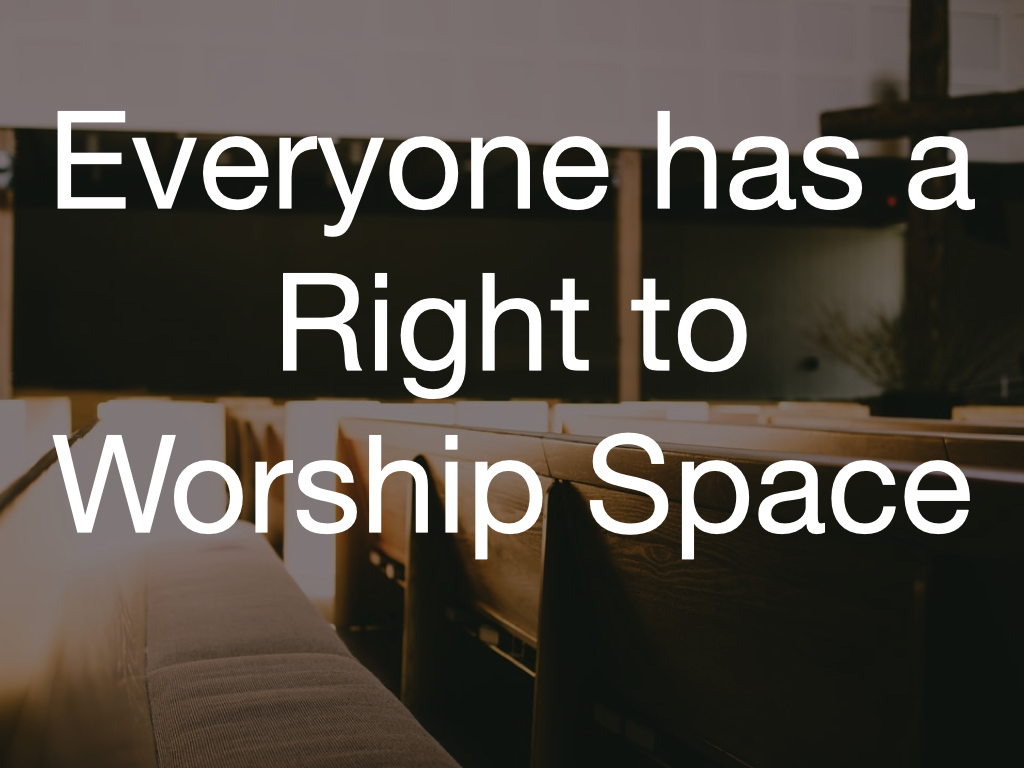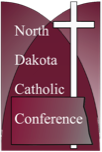
Everyone has a Right to Worship Space
By Christopher Dodson
Executive Director
North Dakota Catholic Conference
January 2021
On December 3 Governor Burgum presented his proposed budget for the 2021-2023 biennium. It includes something that could enhance the exercise of religious freedom for some of our state’s most vulnerable residents.
During the COVID-19 pandemic many of us have come to appreciate the importance of worship space and being in the presence of other believers. Whether we agree or disagree with the voluntary or mandated restrictions on gathering in churches, we should all agree that, to the extent it is safe and possible, people should have access to places dedicated to worship.
This access is something that until the pandemic most of us in the United States took for granted. Unlike in some other countries, Americans are mostly free to build churches, mosques, synagogues, temples, and other places of worship.
A place dedicated for worship is not always available to persons in institutional settings. These settings include nursing homes, jails, prisons, military installations, developmental centers, and state hospitals. People in these settings cannot go and build worship spaces. It is dependent upon the institution to provide areas dedicated for worship.
To help ensure that people in institutional settings have access to what is needed for worship according to their faith Congress passed the Religious Land Use and Institutionalized Persons Act (RLUIPA). RLUIPA prevents that all government institutions, even those at the local and state level, from placing a substantial burden on the religious exercise of the institutions’ residents unless the action is in furtherance of a compelling governmental interest and is the least restrictive means of furthering that compelling governmental interest.
Although RLUIPA provides a high standard of protection, in practice it may not always mean access to an actual chapel or worship space.
Not too long ago a North Dakota county built a state-of-the-art jail but inexplicably did not include a chapel or even a space where priests could hear confessions. It took some involvement by the state Department of Corrections and Rehabilitation and pressure from local pastors to get the jail to provide an accommodation that allows worship services in the jail’s cafeteria.
A cafeteria, however, is not a chapel. Institutionalized persons should have access to worship space that is designed for worship. This fact brings us to the Governor’s budget request.
Governor Burgum is requesting that the Department of Human Services be authorized to build a new state hospital in Jamestown to replace the current hospital which is aging beyond repair. A new state hospital would include a chapel, which would remedy a problem that has existed at the hospital for over twenty years.
For decades the State Hospital had a chapel that was used by both patients and the local community. In fact, members of the St. James Basilica’s community and attended mass there every Saturday. Designed for varying uses, it had an altar and area dedicated solely for Catholic use. A separate Protestant altar was used for other Christian services. The chapel, which was a separate building on the campus, included an organ, pews, meeting space, and was fully stocked with hymnals, prayer books, and worship items for various faiths, Christian and non-Christian.
When the James River Correctional Center took over a part of the state hospital campus in 1997, however, the chapel was cut-off from the rest of the State Hospital. Some assurances were made that the hospital would try to find ways to get patients to the chapel. The tunnels that connected the hospital to the chapel, however, were soon blocked off. Walking above-ground and around the new prison was not feasible. Catholic and non-Catholic services at the chapel were discontinued and the chapel has sat unused for twenty years. Ironically, the prison has never used the chapel.
Today patients at the State Hospital worship in a small former living room in a converted apartment. Like a cafeteria in a jail, a former living room is not an ideal place for worship.
The proposed new state hospital would have a dedicated chapel that would accommodate different faith groups. Like the old chapel, it could have an altar dedicated for Catholic use. In fact, the old altar, with its cross and relic, is still available.
Consideration of chapels and even chaplaincy services can get lost in government planning and operations. Many state legislators might not even think about asking whether the new state hospital would have a chapel.
Public officials and legislators, however, should always give priority consideration to the religious freedom of institutionalized persons and the need for dedicated worship space. Like food, shelter, and health care, religious exercise is a fundamental and essential service that governments must provide to all institutionalized persons. A new state hospital in Jamestown could be a step in that direction.
What We Do
The North Dakota Catholic Conference acts on behalf of the Roman Catholic bishops of North Dakota to respond to public policy issues of concern to the Catholic Church and to educate Catholics and the general public about Catholic social doctrine.

Contact Us
North Dakota Catholic Conference
103 South Third Street, Suite 10
Bismarck, North Dakota
58501
1-888-419-1237
701-223-2519
Contact Us

